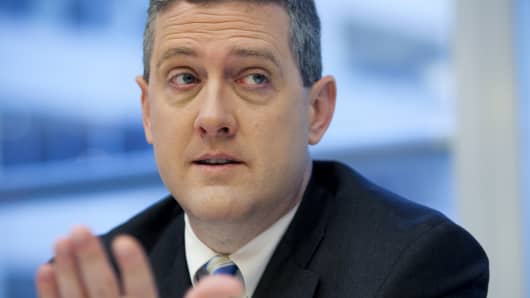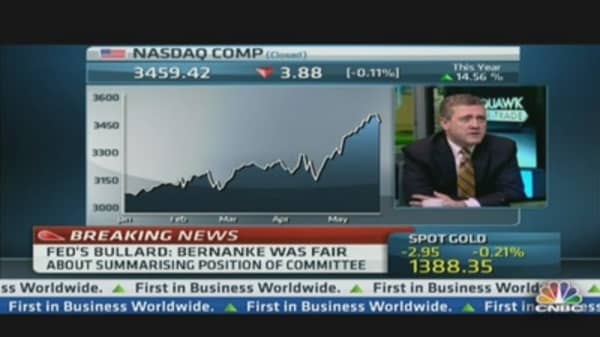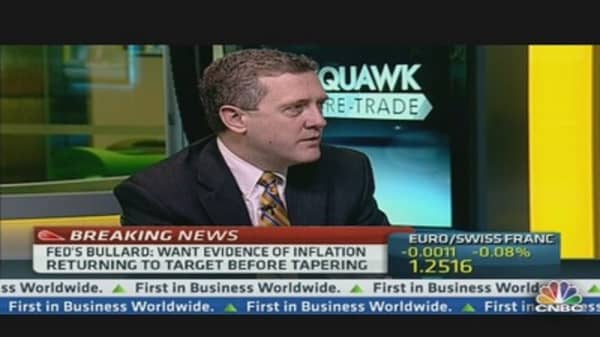Inflation is the U.S. data "wild card" and needs to move closer to target before the Federal Reserve shifts towards a tapering of its bond purchase program, St. Louis Federal Reserve Bank President James Bullard told CNBC on Friday.
"One wildcard for the data in the U.S. is inflation. Numbers have come in quite low. Inflation has been, by our preferred measures been about 1 percent over the last year—way below our target," said Bullard.
(Read More: 'It's a Big Moment for Japan': Fed's Bullard)
"Before I am in favor of tapering I would like to see some assurance that inflation is going to move back towards target," he said.
U.S inflation fell to a two-year low of 1.1 percent earlier this month, at the sharpest pace since December 2008 due to the dip in the oil price. The fall led to speculation that the Fed would stay on its very easy monetary policy path, despite divisions among policymakers.
However, comments from Federal Reserve Chairman Ben Bernanke at the Joint Economic Committee of Congress on Wednesday rocked markets, as he hinted that policymakers might review the Fed's $85 billion-a month asset-purchase program in the next few meetings, should market conditions improve.
(Read More: Ignore Fed Hawks, Bernanke in Driving Seat)
Bullard said the inflation number had been on a downward trend and he would like assurance that it will return back to target before quantitative easing tapering is initiated.





